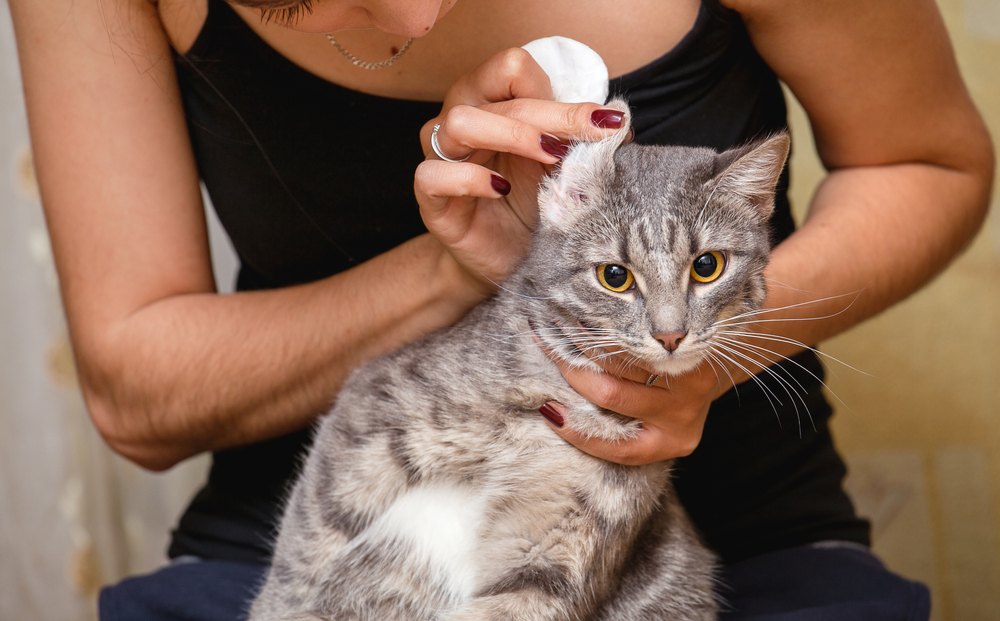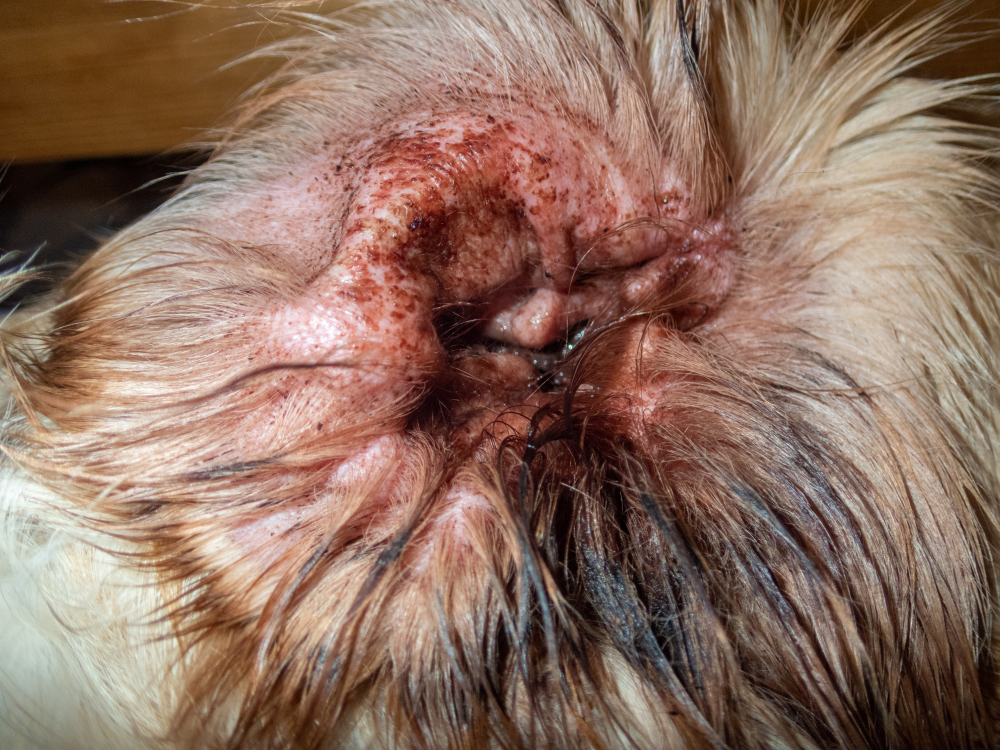Like people, pets require proper nutrition, regular exercise, medical checkups, and their owners’ love to ensure they thrive into their golden years. Our pets are excellent office companions and exercise partners, and often share our pillow for the coziest cuddles. However, many pet owners have been abruptly woken up in the middle of the night because their four-legged companion is vehemently scratching their ears and shaking their bed.
Pets commonly suffer from chronic ear infections, and more than 20% of dogs may experience an ear infection. The resulting sleepless nights can negatively impact the human-animal bond, a critical part of responsible pet ownership. Our Star of Texas Veterinary Hospital team wants to ensure your pet remains pain-free and sleeps soundly, so we describe the ins and outs of chronic ear infections, and how you can prevent your pet from suffering from this painful disease.
What is a chronic ear infection in pets?
Many of your pet’s organs, including their heart, lungs and kidneys, are similar to people’s. However, a pet’s ear canal structure is different, which can make recognizing a problem challenging for pet owners. Your pet’s ear canal is L-shaped, with an upper part of the “L” (i.e., the vertical canal, which pet owners can easily visualize) and a deeper, horizontal portion of the “L” that is connected to the eardrum. This long, unique shape increases your pet’s chances of developing otitis (i.e., infections) from trapped debris or bacteria.
Otitis externa, or inflammation of the external ear canal, is the most common disorder affecting dogs, but cats are also at risk. Pets who suffer from chronic ear infections have a long-standing, or recurrent, infection that can last years, in some cases. Additionally, pets with chronic otitis externa have an increased risk for infection of the middle (i.e., media) or inner (i.e., interna) ear canals, which can lead to neurological problems and permanent hearing loss, in severe cases.
Chronic ear infection causes in pets
Chronic ear infections may result from multiple contributing factors. A pet of any age or sex can develop a chronic ear infection, but certain breeds, including cocker spaniels, poodles, German shepherds, and basset hounds, have an increased risk. Other risk factors include ear canals with excess fur, moisture, or cleaning, and pets born with narrow ear canals. Owners may have difficulty recognizing the initial, subtle ear problem, until the secondary bacterial or fungal infection occurs. The most common chronic ear infection causes are underlying allergies, such as environmental or flea allergies, or hormonal diseases, such as hypothyroidism. Other chronic ear infection causes may include:
- Parasites (e.g., ear mites, mange mites)
- Viral disease, most commonly in cats
- Foreign bodies, such as grass
- Cancer
- Ear polyps
- Trauma
- Unknown causes
Chronic ear infection signs in pets
Early ear infection signs may not be immediately obvious, but pets who suffer from painful, chronic infections show more recognizable signs. The occasional ear scratch may not be problematic, but you should bring your pet for a veterinary examination with our Star of Texas Veterinary Hospital veterinarian if they show persistent ear scratching, or the following signs:
- Foul odor
- Head shaking
- Redness or swelling in or around the ear
- Scabbing, or thickened skin on the inside of the ear flap
- Scaly skin
- Dark black, brown, or white discharge
- Pawing at the ears
- Whining, or hissing, when touching their ear
- Ulceration
- Head tilting
- Pain when opening the mouth
- Circling
- Behavior changes
- Decreased appetite
- Sudden deafness
Chronic ear infection diagnosis and treatment
Pet owners often attempt to resolve their pet’s ear problems with an over-the-counter (OTC) ear cleaning solution or medication. However, some OTC treatments may exacerbate an infection, depending on the underlying cause. Ensure you provide your veterinarian with a thorough history of your pet’s signs, and any home medications you may have used. Our veterinarian will perform a nose-to-tail physical examination, including an ear canal (i.e., otoscopic) exam, which may include collecting an ear debris sample. Chronic ear infections are painful, and some pets may resist an ear examination. Fortunately, our Fear Free certified veterinarians are skilled at decreasing your pet’s ear exam anxiety, although some pets may still require sedation to allow a thorough examination and sample collection. Determining the underlying infection cause may be challenging, and recommended diagnostics may include:
- Ear cytology, to microscopically examine debris
- Ear sample bacterial and fungal culture
- Blood work, to rule out underlying endocrine or immune diseases
- Allergy testing
- Advanced imaging, such as X-ray, computed tomography (CT), or magnetic resonance imaging (MRI), to visualize the ear canal, and rule out neurological causes
Some pet ear infections can be treated with ear cleaning solutions, topical ointment, and pain medication. Generally, medications will be prescribed for several weeks or months, to ensure the infection resolves, but some pets may require additional treatments, such as:
- Specialized allergy diet
- Allergy shots
- Anti-inflammatory medications
- Pain medications
- Hormone regulation medications
- Oral antibiotic, antifungal, or anti-inflammatory medications
- Surgery to remove swollen ear canal tissue
Preventing chronic ear infections in pets

Chronic ear infections are not always preventable in pets, because the underlying cause may be genetic, or undetermined. Regular veterinary visits and early recognition of signs are critical to prevent more severe chronic infections, which may cause permanent hearing loss. Additionally, frequently handling and inspecting your pet’s ears for abnormal signs, especially when they are young, will help decrease their stress during a veterinary otoscopic exam. Other prevention tips include:
- Keeping your pet’s ears dry and well-ventilated
- Giving your pet monthly parasite prevention
- Never placing any cotton swabs, or OTC cleaners or remedies in your pet’s ears, without veterinary advice
Call our Star of Texas Veterinary Hospital office if your pet is showing ear infection signs, and schedule them for an appointment. We are here to help alleviate your pet’s painful ears.







